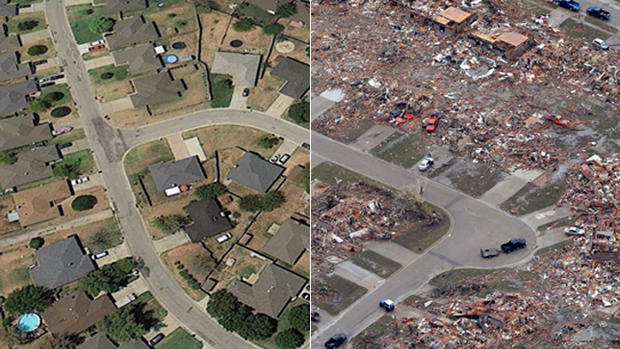Protective blanket could shield kids from school shootings, tornadoes
An Oklahoma company has created a protective blanket that developers say could give children a better chance of surviving debris from a tornado - or bullets from a 9 mm handgun.
The Bodyguard Blanket, made by ProTecht, is a bulletproof pad designed to protect students during disasters at school. The 5/16-inch thick rectangle features backpack-like straps that allow users to put it on, and then duck and cover.
Steve Walker developed the pad, The Oklahoman reported. Walker started on the idea after a massive tornado struck last year in Moore, killing 24 people including seven children inside an elementary school that didn't have a tornado shelter.
"We're trying to stop that blunt-force trauma when that rubble is falling down on a child, for instance," said Walker, a podiatrist from Edmond.
He gave a sketch of the protective blanket to Stan Schone, an inventor and one of his patients, during an appointment. The two form half of the executive team at ProTecht. The others are Jeff Quinn and Jay Hanan.
Hanan is an associate professor of mechanical and aerospace engineering at Oklahoma State University-Tulsa. He introduced the team to Dyneema, a high-density plastic used for ballistic armor that is lighter than Kevlar.
The new material also protects against nails, shards of metal and other sharp objects.
"Instead of bending over and hoping for the best, they're afforded an extra layer of protection," Schone said.
At $1,000 per blanket, he and others with the company say buying one per student would be less expensive than building tornado shelters.
"By no means would we ever say that this is more protective," Walker said. "But when you have budget constraints, this might be a viable alternative."
ProTecht took a finished blanket to a shooting range and had it subjected to a National Institute of Justice Class 3A test, which is used to test body armor for police units. The classification implies protection against various projectiles, including 9 mm and .22-caliber bullets. It passed, Schone said.
The company posted a video of the test on its Web site.
The blanket has been in production for about 10 months, and the team started marketing it about a week ago, he said.
